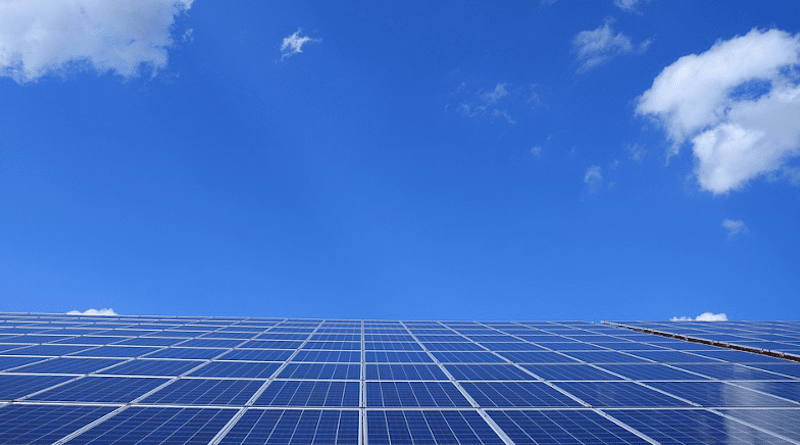Protectionism Threatens The Climate Transition – Analysis
By Ken Heydon*
Trade is a key multiplier in spreading the technology vital to the climate transition. But protectionist tendencies embedded in the implementation of the climate transition pose a major threat to the global trading system.
Technological innovation — backed by a carbon tax to make it competitive — is the essential requirement for transition to net-zero carbon emissions by 2050. And trade, by stimulating competition, is a catalyst of innovation.
Three areas of technological transformation stand out. Australia and its Asia Pacific neighbours have a stake in each of them.
The first is solar photovoltaic technology that uses solar panels to convert sunlight into electricity. Over the past decade, solar photovoltaic has become a pillar of the low-carbon sustainable energy system with installed capacity increasing 100-fold and costs declining by 77 per cent. Some 40 per cent of the decline in the cost of solar photovoltaic modules since 2001 is attributable to trade.
With the highest solar radiation per square meter of any continent, Australia is particularly well placed to profit from solar photovoltaic technology, as testified by the proposed Darwin–Singapore undersea renewables-generated electricity cable. Malaysia, Vietnam, Thailand and the Philippines rank among the top 10 global exporters of selected solar photovoltaic goods.
The second area of trade-augmented innovation is the export of low-carbon hydrogen, important in hard-to-electrify sectors like steel production and facing a potential six-fold increase in demand by 2050.
Australia is at the forefront in using renewable energy to produce zero-emissions ammonia — a low-cost carrier for hydrogen — and no less than six Japanese corporations have hydrogen development projects in Australia.
The third area of innovation is CRISPR (clustered regularly interspaced short palindromic repeats). This gene-editing helps countries decarbonise their food systems by making export crops that are resistant to disease or bad weather, reducing the need for increased farmland via deforestation — the source of 10 per cent of global carbon emissions.
For example, CRISPR-based genome editing of oil palm to eradicate Basal Stem Rot will significantly reduce plant loss and subsequent compensatory deforestation in Indonesia and Malaysia — the leading exporters of palm oil. A switch to trade in gene-edited palm oil promises major environmental benefits.
Beyond trade’s multiplier role in spreading the benefits of specific technologies, it also has a more general function in stimulating the economic growth necessary to fund the energy transformation.
Yet despite trade’s role in the climate transition, the transition itself threatens trade. As countries’ environmental commitment varies, pressure mounts for tariff restrictions on imports of carbon-intensive products, like steel, from perceived environmental free riders.
The difficulty of identifying carbon intensity and free riding fuels the view that such penalties are simply disguised protectionism. The resulting tensions — augmented by the climate transition’s emotive power and by broader protectionist tendencies, including as countries favour their own climate technologies — pose a major threat to the trading system.
In each of the three areas of technological promise there are strong contradictory forces of trade restriction.
Trade in solar photovoltaic technology is subject to both tariff and non-tariff barriers. For example, 31 WTO members apply tariffs over 10 per cent to certain essential solar photovoltaic materials such as polysilicon. Australia scores an own-goal by imposing duties (both dumping and countervailing) on solar equipment imports thus raising the costs of renewable electricity.
The threat to trade in hydrogen comes from a call by competition-fearing European Union electricity groups for a carbon tariff on EU hydrogen imports. Though the case for Australia’s blue hydrogen — using brown coal and carbon capture and storage — is controversial, a Carbon Border Adjustment Mechanism tax risks application to all hydrogen imports and a setback to carbon capture and storage, without which ‘net zero’ will be impossible.
The threat to CRISPR gene-editing is a repeat of the type of regulatory barriers that invoke health and environmental concerns to hinder the development and trade of genetically modified organisms. Many countries’ farming regulations, including those of New Zealand, constrain both GMOs and CRISPR, even though CRISPR does not introduce DNA from other species.
The challenge is real. Protectionism risks hobbling trade’s role in fostering the technological promise of the climate transition — raising the level of the carbon tax needed to effect that transition and weakening public support for it.
Resisting protectionist forces will require action at all levels. Domestically, by improving coherence in national policy, including in Australia in respect to solar equipment. Regionally, with a key role for APEC — in respect to both environmental goods and services. And multilaterally, where Australia is among 13 countries (including the United States and Canada) that have submitted to the WTO that gene-edited products should be regulated in the same way as conventional ones.
The stakes are particularly high for the WTO, which is about to face — via the climate transition — one of the most severe systemic challenges in its history.
*About the author: Ken Heydon is Visiting Fellow at the London School of Economics and Political Science. He is a former Australian trade official and senior member of the OECD secretariat.
Source: This article was published by East Asia Forum

